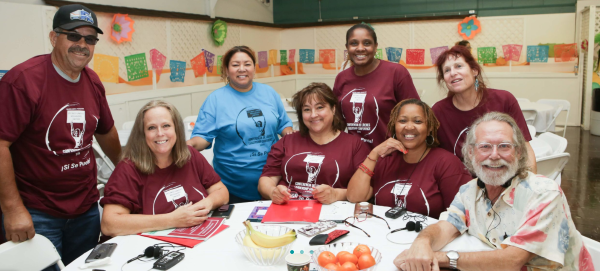Our struggle is to bring social, political, and economic justice to our nation. This is an effort of the Chicano/Mexican American Digital History Project. https://sites.google.com/site/chicanodigital/
Monday, October 30, 2023
Choosing Democracy: Labor Wins The Big One - UAW
Friday, October 13, 2023
Sanders on the Continuing Violence in Israel and Gaza
Saturday, October 07, 2023
Immigrants' Rights to Join a Union
IMMIGRANT EMPLOYEE RIGHTS UNDER THE
NATIONAL LABOR RELATIONS ACT
Although employers must obey immigration laws, if you choose to talk to or take action with your co-workers to improve your working conditions, it is illegal for your employer to use your immigration status against you.
For example:
Employers cannot threaten to call ICE because you and your co-workers tried to join a union.
Employers cannot demand that you produce new immigration papers because you talked with your co-workers or a union about your working conditions.
Regardless of immigration status, you have the same rights under the National Labor Relations Act (NLRA) as all covered employees including the right to:
Organize with a union to negotiate with your employer concerning your wages, hours, benefits, and other working conditions.
Talk about working conditions with your co-workers, the public, or a union.
Take action with your co-workers to try to improve your working conditions.
Choose not to do any of these actions.
If you believe that your employer has retaliated against you, your coworkers or your union, you can contact the National Labor Relations Board (NLRB) to file a charge. The NLRB will investigate the charge, which includes:
Taking your affidavit and asking for your evidence. Because you are protected under the NLRA just the same as any other worker and because an individual’s immigration status is not relevant to whether the NLRA has been violated, the NLRB will not ask about your immigration status or the immigration status of others during our investigation or litigation to prove violations of the NLRA.
The NLRB may take legal action against your employer if the evidence shows that your employer is unlawfully using your immigration status to threaten or retaliate against you because you exercised your rights under the NLRA. The NLRB may also work with other agencies to ensure that immigration laws are not being used to threaten or retaliate against workers for exercising their rights under the NLRA.
If your employer has fired you because you exercised your rights under the NLRA, the NLRB will work to get your job back and to get you paid for your lost wages. But if the employer proves that you were not authorized to work, the NLRB cannot order the employer to pay you lost wages and may not be able to get you your job back. In those situations, the NLRB will seek other remedies and may work with immigration agencies to assist with employees who have been victims of labor rights violations. For example, the NLRB may consider whether you could be eligible for a U or T visa or deferred action and may work with immigration agencies to try and obtain this kind of relief.
Contact the NLRB: www.nlrb.gov, 1-866-667-NLRB, or download our mobile app!
Friday, October 06, 2023
Elections and Democracy in Guatemala
| |||||||||||||||||||||||||||||||
Dolores Huerta Foundation

In 2005, the Dolores Huerta Foundation launched its first house meeting campaign – a foundational piece of DHF's community organizing model – and organized its first grassroots volunteer groups to work on infrastructure improvements in Kern County, California. From this effort, Vecinos Unidos was born!
In its very first year, DHF's Vecinos Unidos network successfully advocated for the Bakersfield Board of Supervisors to improve public safety by building sidewalks around three area schools that lacked them.
Within the following year, the Vecinos led a successful campaign to remove the Texas company that had been hurting the community with its mismanagement of the local water board and bring in local management. Under its new leadership – which included three Vecinos who independently ran for and got elected to the water board – the board stabilized water rates, installed water meters in residents' homes for correct water usage monitoring, exposed gross mismanagement of funds by the previous board, and called a grand jury to investigate.
Even in its earliest years, DHF's community-based model of training and organizing local volunteer leaders showed the tremendous impact that improved the daily lives of community members. It's a model – invented by legendary community organizer Fred Ross, Sr. and pioneered by our founder and namesake Dolores Huerta – that has been expanded, refined, and replicated over the past two decades, leading to the growing list of successes, the empowerment of communities, and life-changing benefits for tens of thousands of families and individuals.
Vecinos Unidos, specifically, continues to empower community leaders through hands-on training to lead civic engagement campaigns, hold elected officials accountable, and secure positive outcomes to address the needs of their community. Vecinos chapters have successfully advocated for community improvements such as more parks, paved roads, pools, sewer connections, education equity, and more.
Thanks to the ongoing dedication of our volunteers, network members, and supporters like you, we'll keep making a difference in people's lives, protecting fundamental rights, and helping marginalized and vulnerable communities find their voice in our democracy for decades to come!
Stay tuned for more stories of impact as we celebrate 20 years of the Dolores Huerta Foundation, and if you're on social media and not already doing so, follow DHF's social media channels for even more updates on our work and ways to engage:
Thank you for everything you do!
– Your friends at the Dolores Huerta Foundation

.png)